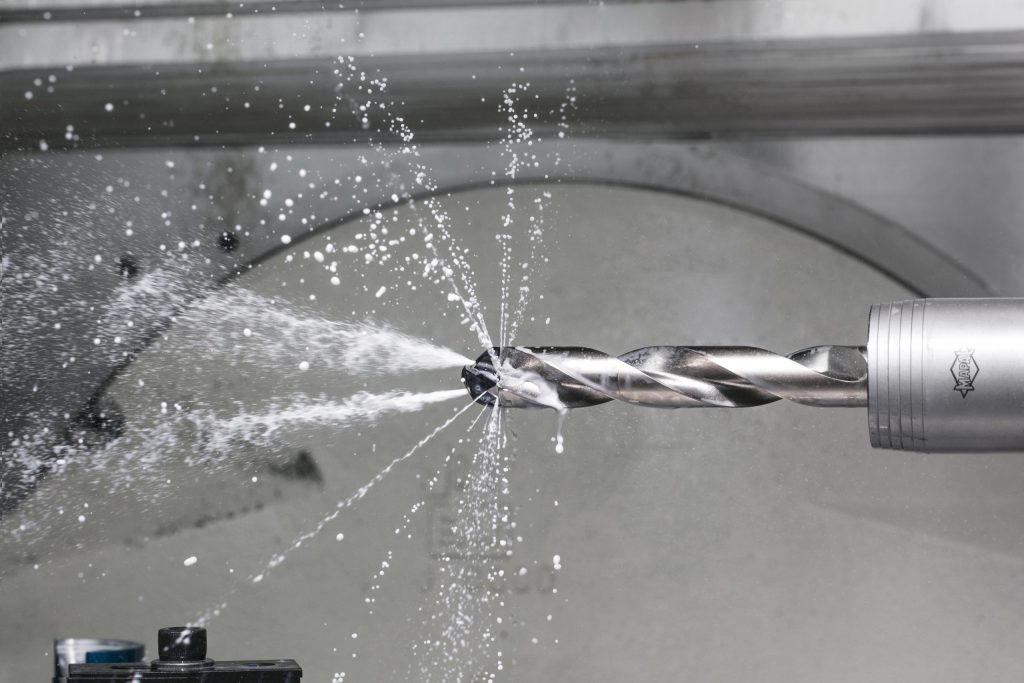Bonderite duaLCys Metalworking Fluids
Bonderite duaLCys Metalworking Fluids
Two years after it was first introduced to the metalworking market, Henkel's innovative Bonderite duaLCys process has proven its superior cost-efficiency and sustainability over conventional cooling lubrication and cleaning processes. Bonderite duaLCys is part of Henkel's comprehensive portfolio of process solutions for the metalworking industry that can be tailored to the precise needs of customers across their entire value chain from casting and machining to assembly.

Two years after it was first introduced to the metalworking market, Henkel's innovative Bonderite duaLCys process has proven its superior cost-efficiency and sustainability over conventional cooling lubrication and cleaning processes. Bonderite duaLCys is part of Henkel's comprehensive portfolio of process solutions for the metalworking industry that can be tailored to the precise needs of customers across their entire value chain from casting and machining to assembly.
The duaLCys technology reportedly offers significant improvements in all competitive criteria, including time, fluid and energy consumption, as well as product quality and process safety. Essentially, it leverages the synergies between the process fluids by recycling the cleaner into the lubricant bath rather than discarding it as waste.
Inspired by the bactericide-free duaLCys technology, Henkel has developed an entire range of standard and specialized, one-component products:
- Bonderite L-MR 20717 is the all-rounder, suitable for nearly every machining operation, to include a variety of operations and materials.
- Bonderite L-MR 21164 is for machining various specialized materials, such as brass, copper, zinc-coated, aluminium alloys and pure magnesium. It also provides stability in very hard water conditions.
All the products are free of both boron and formaldehyde, and offer excellent biostability, corrosion protection, high lubricity and good cleaning ability. Featuring very fine dispersion, they also function well in a range of water hardness and applications, and deliver improved sustainability, as well as significant cost savings.
Over all systems and customer installations in the past 18 months, Bonderite duaLCys has reduced the cooling lubricant consumption by 60 percent, according to the company. The process has been widely adopted for almost all metal substrates throughout the automotive industry and is fast entering other market segments.
Mapal Präzisionswerkzeuge Dr. Kress AG, for instance, is using the system in their machining of special tools for a manufacturer of large mining drill bits. With Bonderite duaLCys, the customer was able to speed the process, while eliminating the use of solvents formerly needed to fully remove the cooling lubricant from the machined surfaces.
In a further step toward even greater efficiency and sustainability, Henkel has partnered with Hamburg-based LDT Dosiertechnik for combining the duaLCys process with LDT Dosatron proportional pumps for dosing the cooling lubricant. These water-powered pumps require no electric supply or other utilities, such as compressed air.
Martin Desinger, business development manager, lubricants, Europe, at Henkel Adhesive Technologies, comments: "In close collaboration with LDT Dosatron, we succeeded in developing a tailor-made 'plug and play' system available in customized configurations for integration into new or existing Bonderite duaLCys process lines."
Henkel's duaLCys process utilizes the synergy between a lubricant and a cleaner: Bonderite C-NE 10466 high-performance, water-based neutral cleaner, and Bonderite L-MR 21466 cutting fluid. The cleaner produces no foaming in most common water hardness, provides excellent corrosion protection and can be used at room temperature. The machining fluid is a finely dispersed lubricant. Both are free of boron and bactericides and have very strong biostability. The system is suitable for most metal substrates, including steel, stainless steel, cast iron and aluminum alloys.
The Bonderite duaLCys process requires less water and saves energy by allowing the cleaner bath to operate at a reduced temperature.
In addition to minimizing waste while delivering low reject rates and high surface quality, Bonderite duaLCys also offers improved working conditions resulting from the use of safer, more predictable solutions. In the automotive industry, the process can provide a competitive edge to OEMs, Tier 1 suppliers and machining companies alike by enabling a more cost-effective, sustainable way of manufacturing metal parts such as powertrain components, wheels, HVAC compressors and other machined parts.
"The Bonderite duaLCys process is a unique concept in the area of machining and in-process cleaning for the metalworking market," adds Desinger. "Recycling the cleaning fluid instead of throwing it away, and making use of its synergies with the water-soluble cutting fluid, results in an excellent combination of high lubricity, superior part cleanliness and excellent corrosion protection."
Machining tools last much longer in operations using Bonderite duaLCys, thanks to its much higher lubricity, as well as its superior cleaning capability, compared to conventional products. The lubricant also features precleaning properties due to its combined formulation. Operations can save up to 40 percent in process costs and reduce lubricant drag-out by as much as 70 percent.





